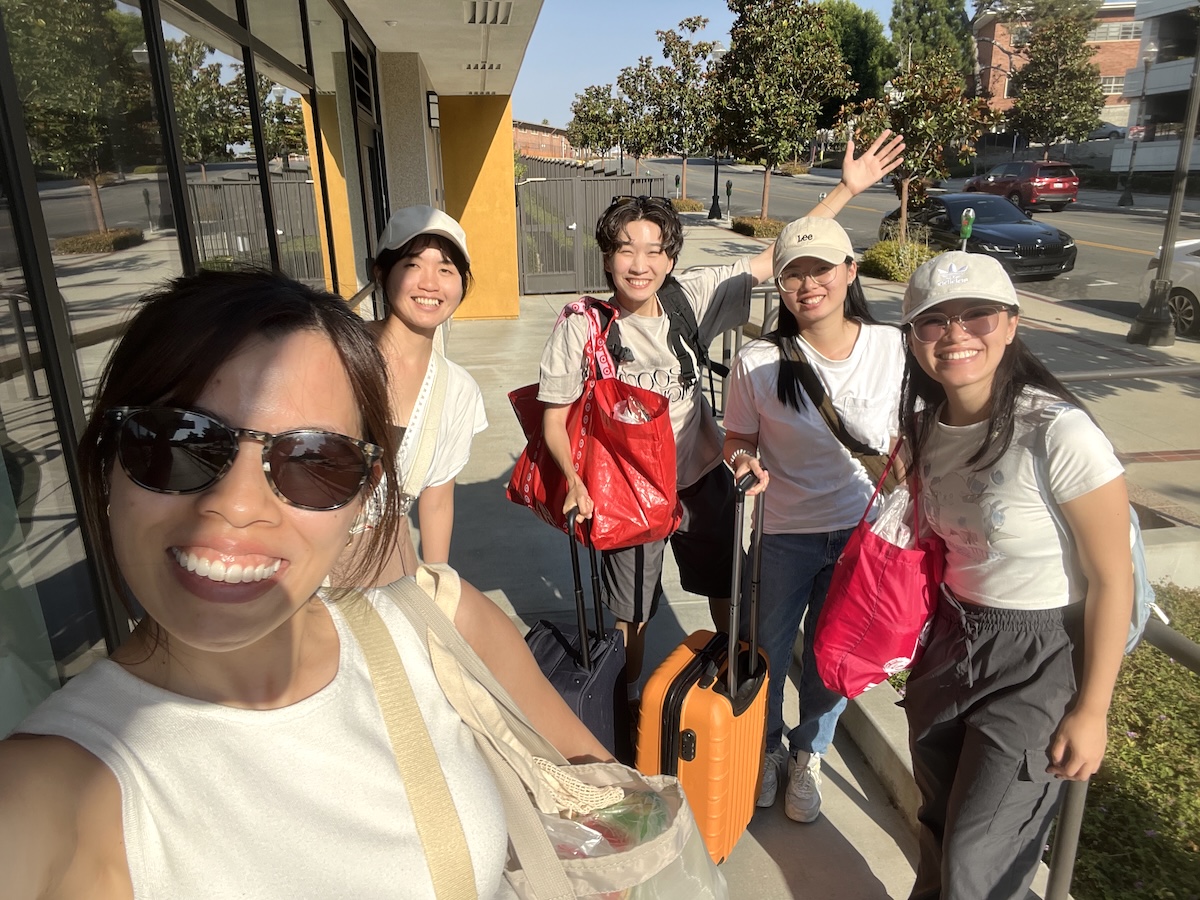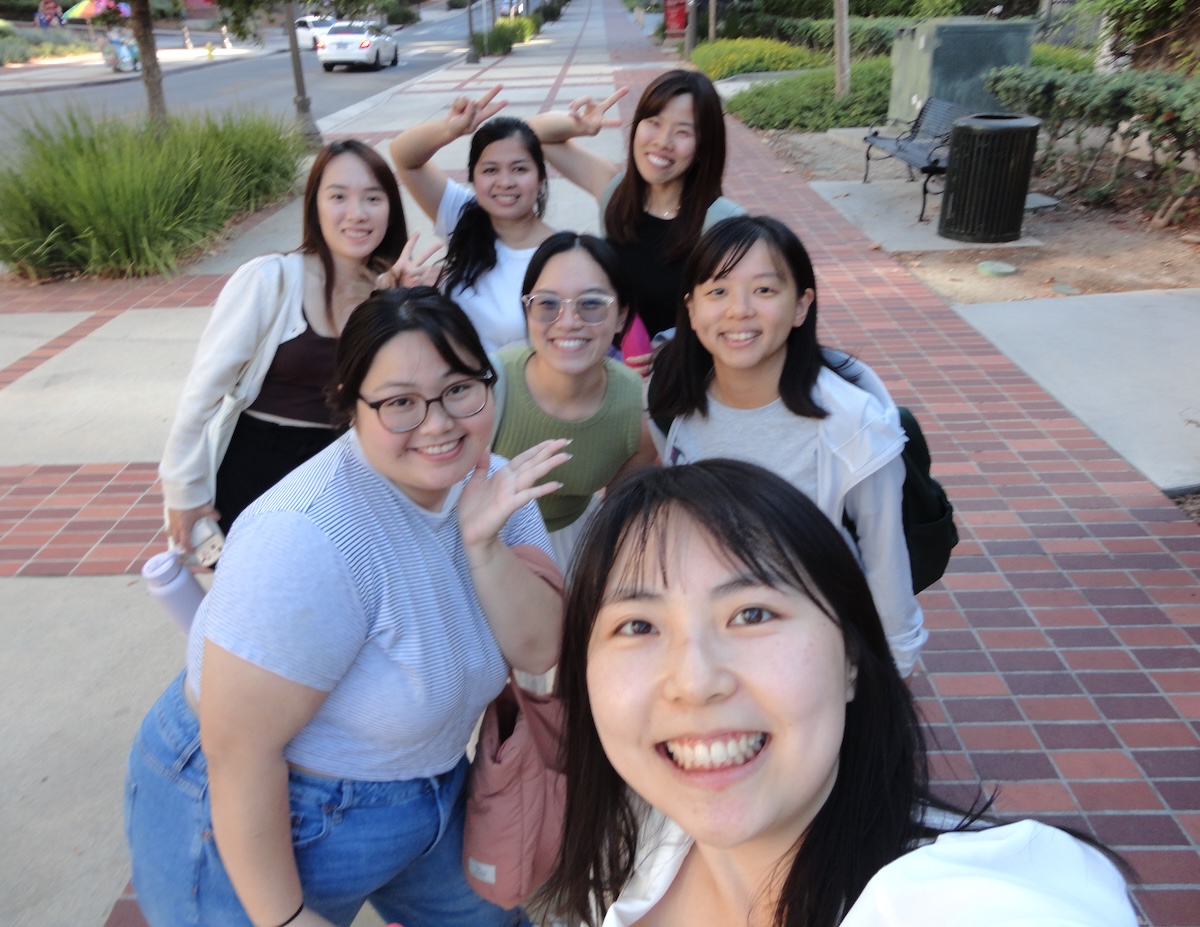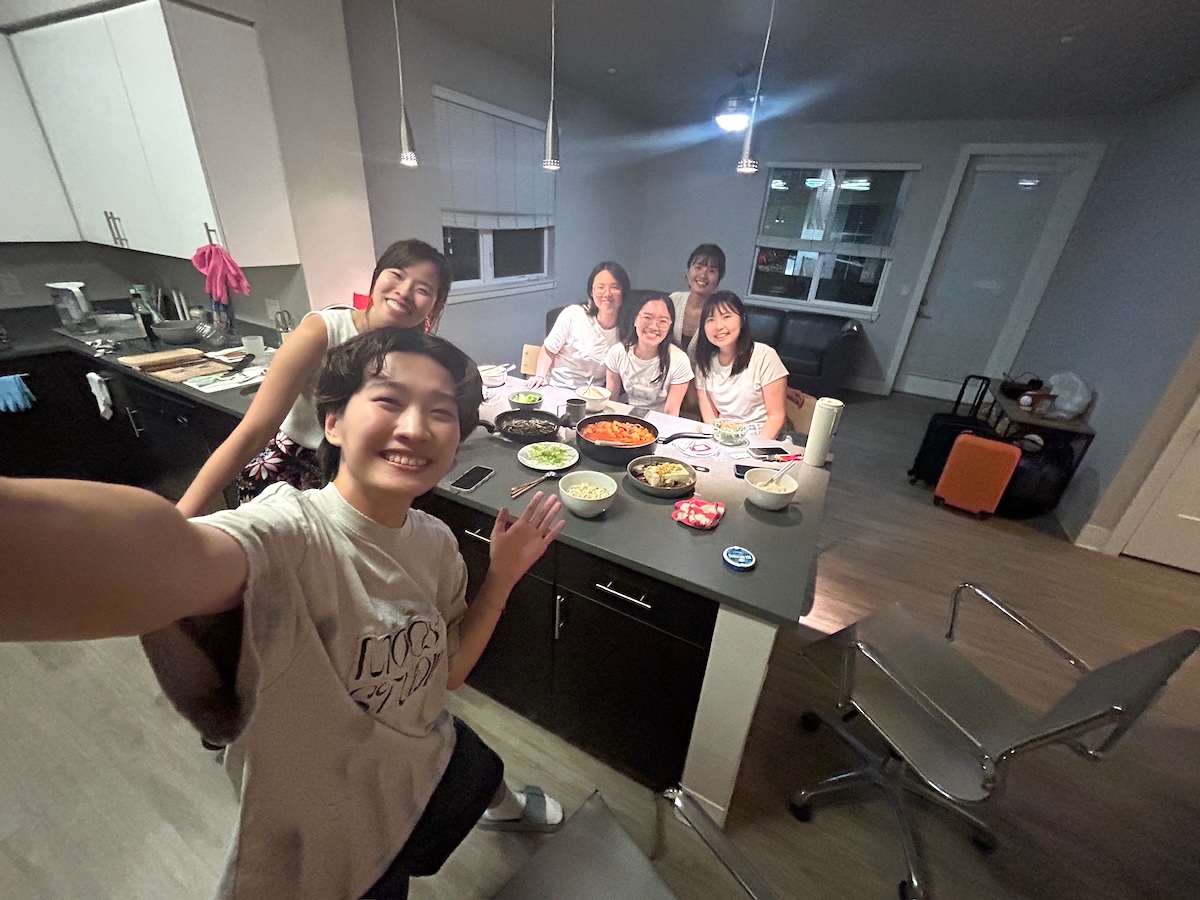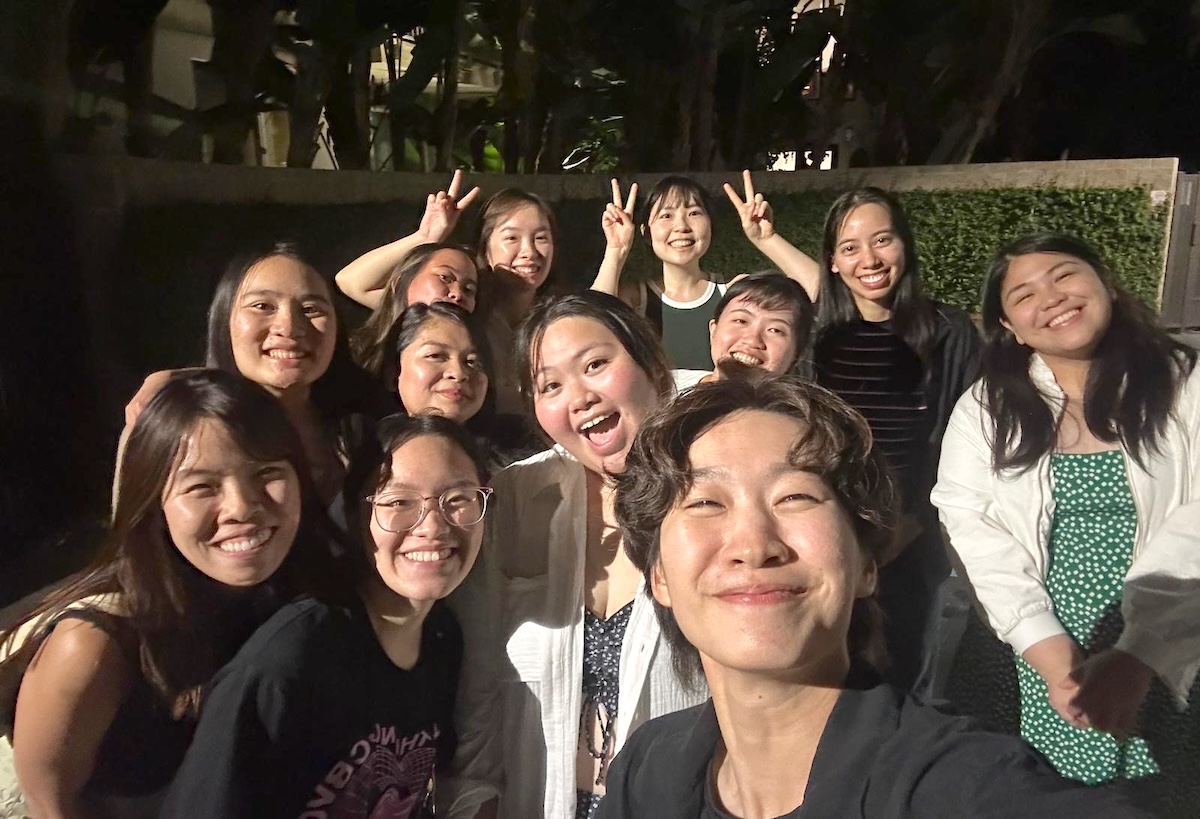Student Blog
Tanya
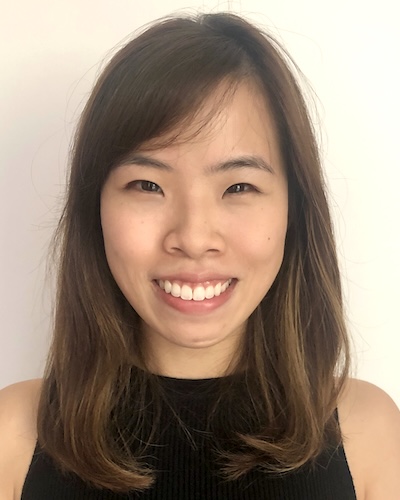
Taking my first exam, more than a decade later ⟩
November 12, 2024, by Tanya
Beginnings and Endings Classes International
The anxiety that hit me on the morning of my first exam in a long time was one I had not experienced, one that felt so foreign. Perhaps it is because I was not used to it as it has been a while, and not to sound dramatic but it felt worse than going for a job interview or presenting in front of a large audience. Everything felt so uncertain and unexpected, and I, as a person who valued control and preparedness, felt quite lost and nervous.
Even the platform that the exam was on seemed foreign, with the entire exam being digitalized. This is a stark contrast from the days when my biggest worry was that I had multiple sharpened 2B pencils to shade the correct option in a multiple-choice exam. I was amazed that the paper could be downloaded before the commencement of the exam, and the exam software came with tools such as the highlighter and timer visible on your screen.
I was overcome with a sense of relief mixed with anticipation of how I performed once I saw the green screen notifying me that the submission was successful on my screen.
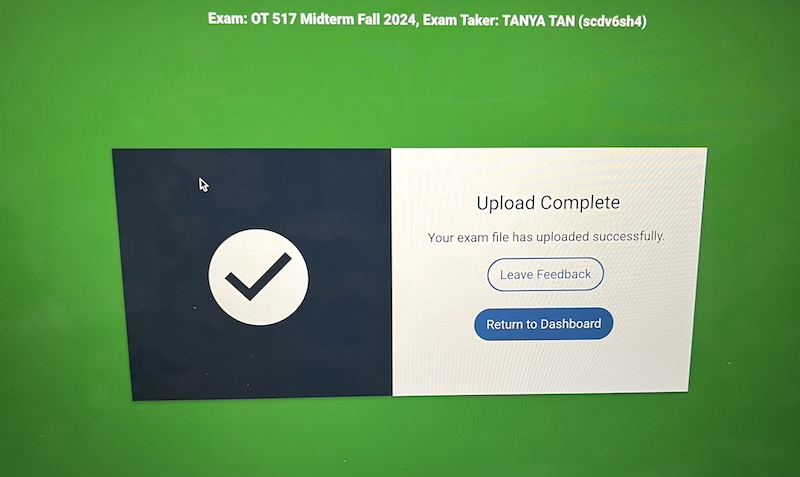
After my first Sensory Integration mid-term exam — taken with permission from Dr. Gunter upon submission
Given the option, I would have much preferred to have written a paper instead, as this would have allowed me to weave in my thoughts and opinions supported by evidence. When I reflected on the entire experience, I would say my anxiety stemmed from the unfamiliarity of the advancement in technology as well as the entire examination process that felt so foreign rather than the actual content. And this was yet another way for me to learn how to adapt to changes and move with the times.
If you have not been on the academic journey for some time, here is what I did to help deal with these changes. It did not remove the nerves completely, but it helped me settle into it faster.
1. Having stationaries that help with note-taking
If you are like me and prefer to organize and write down notes on paper to visualize the information learned, it will be helpful to bring some writing implements or sticky notes that you are used to back home.
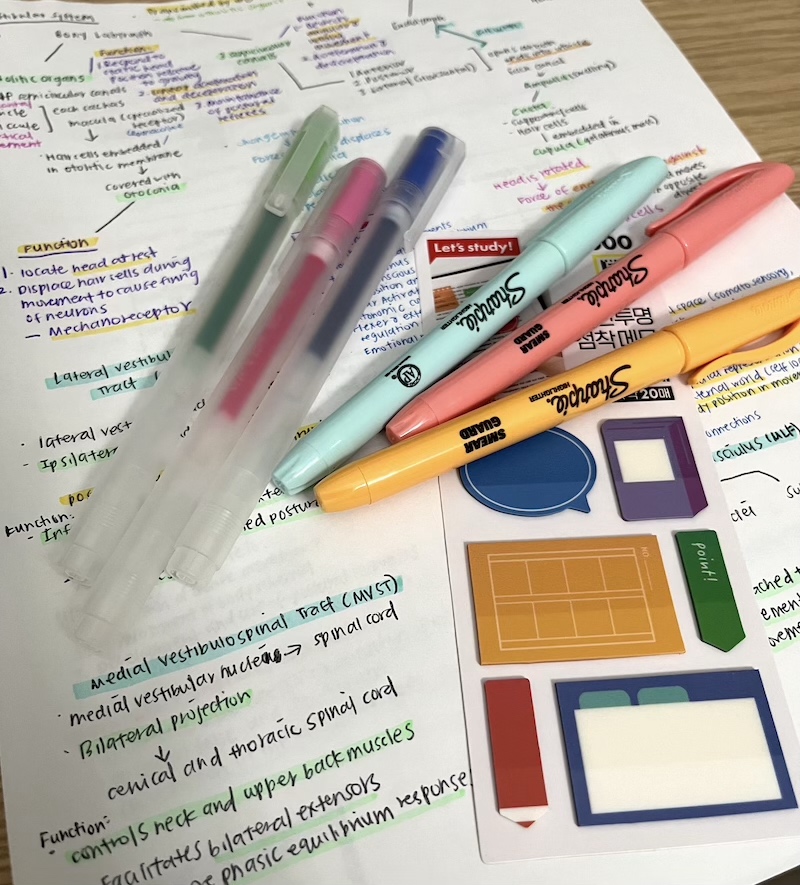
Some of my writing implements that I brought over from Singapore
2. Follow your usual sleep pattern
Hearing some of my classmates share about the later times they sleep and how they feel more efficient or productive, made me consider this choice and attempt it. I usually head to bed by around 11 pm and decided to try staying up till 1 am. Sad to say, this was counterproductive, and I was less efficient and felt even more lethargic over the next 2 days. Know your body system and do what is best for you, you do not have to change your routines despite adopting a new role.
3. Enjoy leisure amidst the exams and assignments
Along with midterms also come assignment submissions, this can be a lot, and you may feel overwhelmed by it. It may feel that every minute should be channeled to studying or reading another article, however, engaging in leisure does clear your mind and refreshes you. It is the little things that can have a greater impact.
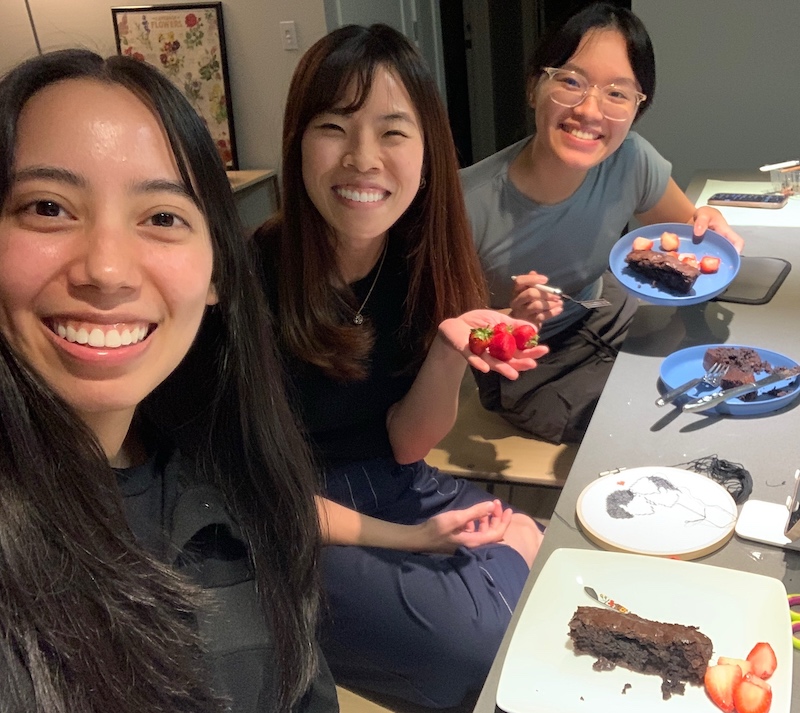
Here is a picture of my housemates and I enjoying the brownies that we baked. It took longer than expected but it allowed us to chat, laugh, and relax while enjoying the process.
4. Planning ahead to ensure you have sufficient groceries
I usually travel on the bus to get my groceries over the weekend, as it is nice to browse and select my items. However, it can be a little time-consuming when it is ‘crunch time’ due to the additional time spent on commuting. It is helpful to plan and purchase additional groceries with a longer shelf-life to last for the upcoming week. Another helpful way is to purchase your groceries online. There are various stores online, such as Instacart, Weeee, etc that are helpful when other factors are deterring you from going out.
5. Be a little more courageous
That’s what I tell myself when I do not understand the concepts or have questions about the topic being taught in class. It could be my personality or how I am used to academic lessons back home that make it more challenging for me to ask questions. However, I would encourage you to raise your hand and ask, or go to an office hour appointment to clear the doubts that you may have. If you don’t, the person that is at the losing end will eventually be yourself. As they say, knowledge is power, so do not leave the module with an unanswered question.
Despite various deadlines that you need to meet, it is important to stop and pause, and also look at your surroundings as you commute on the shuttle bus or to your apartment. LA has very beautiful sunsets and skies, but you will miss it if you are just focused on thinking about your to-do list.
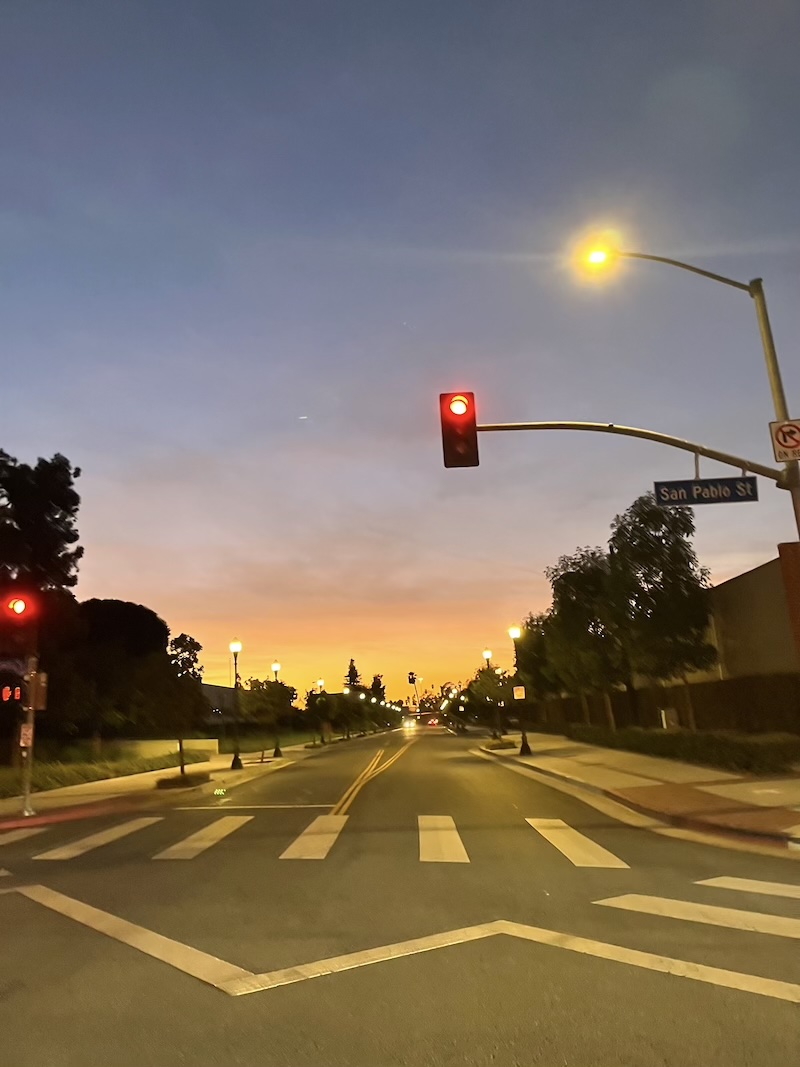
Sunset on the way to an evening class
⋯

From Worker to Student: A New Occupation ⟩
September 26, 2024, by Tanya
Beginnings and Endings Community International Life Hacks Living in LA School/Life Balance
It is week 3 of school and perhaps with the exploration of Occupational Science, it made me reflect about the current journey I’ve chosen to embark on; a new occupation. I am no longer a working adult but one who is back in school — an adult student. It has been approximately a month since I said goodbye to the familiar, the known and the expected. Things are no longer as familiar, and navigating through this change has not been the easiest, to say the least.
I have stepped into the unknown and the unfamiliar in the decision to pursue the Post-Professional Master’s degree here at USC Chan, and if I were to use the Person-Environment-Occupation (PEO) Model (Law et al., 1996) to frame my life, you could say that I am still learning to maximize the fit to attain the same occupational performance I had back home. There is not just a literal change, in the physical change in environment, but also a change in my social environment. Social supports that I could turn to immediately had a 15 hour time difference. Even though this is not the first time living alone in a foreign country, it does not get any easier. There are some days I still get teary looking at pictures or Instagram videos and wish I could teleport home to be part of a special event, to comfort a friend or just to get a physical hug from a loved one. Leisure activities which I could engage in frequently are harder to access as I do not drive, or are things that I could not bring over (e.g., my sewing machine).
Even the most simple things require unlearning and relearning — take the metric systems — I am still learning how to convert Fahrenheit to Celsius, Pounds to Kilograms and Miles to Kilometres. It does get better with practice and of course, consulting with Google Converter, especially when I am at the grocery store, has been such help to me. Exploring the transportation systems might be a little tricky, but I am thankful that I got the chance to explore with my course mates, who are becoming a different sort of support system.
Having a new occupation as a student comes with new expectations and responsibilities. I used to read journal articles that I received from my monthly BJOT subscription or when I was reading up on the evidence of interventions that I would like to use. However, being a student means reading and trying to synthesize the contents of the articles for each module that you take. Living alone also means that that are other things you need to manage and set aside time for, such as meal-prep, household chores, figuring out how the dryer works and grocery runs.
Here is another picture of us on our longest day of classes and testing out a classmate’s new digital camera
Though the Occupation and Environment has changed, one thing that remained constant is the Person (that’s me). The changes might seem overwhelming initially but your abilities that enabled you to navigate the challenges, difficulties and new seasons in your life in a place of familiarity and comfort do not change amidst the change in the environment. The routines that you have created for yourself back home can also be replicated here — it just takes a little time to figure and analyse what is better and suitable. I’ve resumed my curiosity in cooking and explored the different dishes and cooking hacks on social media. This has not only provided me with affordable and delicious meals, but it has been a nice and relaxing activity and a way for me to connect with my housemates.
Being a planner, I have plans to crochet and hit the gym with my house/course mate Kate — we will get to it soon! Being away makes you grow as an individual as you reflect and learn to see things from a different perspective — who knew that just having dinner and chatting by the pool with friends is something so enjoyable and refreshing, an activity that I hope will be part of my new routine. Change is hard but it can also be an experience that will shape, develop and make you a better OT as you view things from new and different perspectives. It is also important to be intentional, not just here, but with the people back home, technology in this case is truly a blessing. Being 8811 miles away does feel shorter with the texts and calls.
One thing I am thankful for are my course mates, they make home feel a little less far. My new social environment, but one I am thrilled to share the remaining year with as we learn, laugh and eat together.
Here is a photo at the end of the first week of school with some of my coursemates and housemates. What is missing from the photo is the food people cooked — amazing cuisine from Taiwan and Philippines!
Stay tuned if you are interested in finding out what my remaining year will be like as a new adult student — I personally know it will be an amazing one and one that I will proudly say that I have maximized the PEO fit at the end of it.
Reference
Law, M., Cooper, B., Strong, S., Stewart, D., Rigby, P., & Letts, L. (1996). The Person-Environment-Occupation Model: A transactive approach to occupational performance. Canadian Journal of Occupational Therapy, 63(1), 9–23. https://doi.org/10.1177/000841749606300103
⋯






